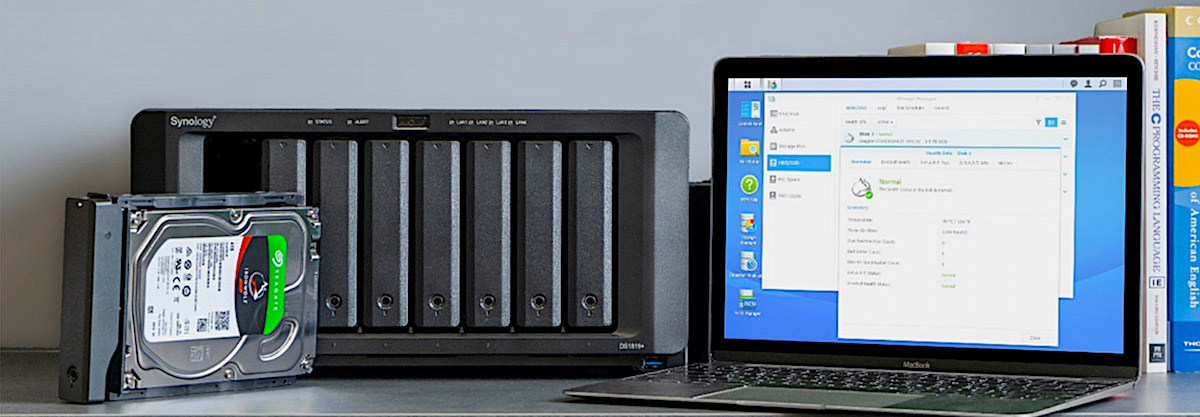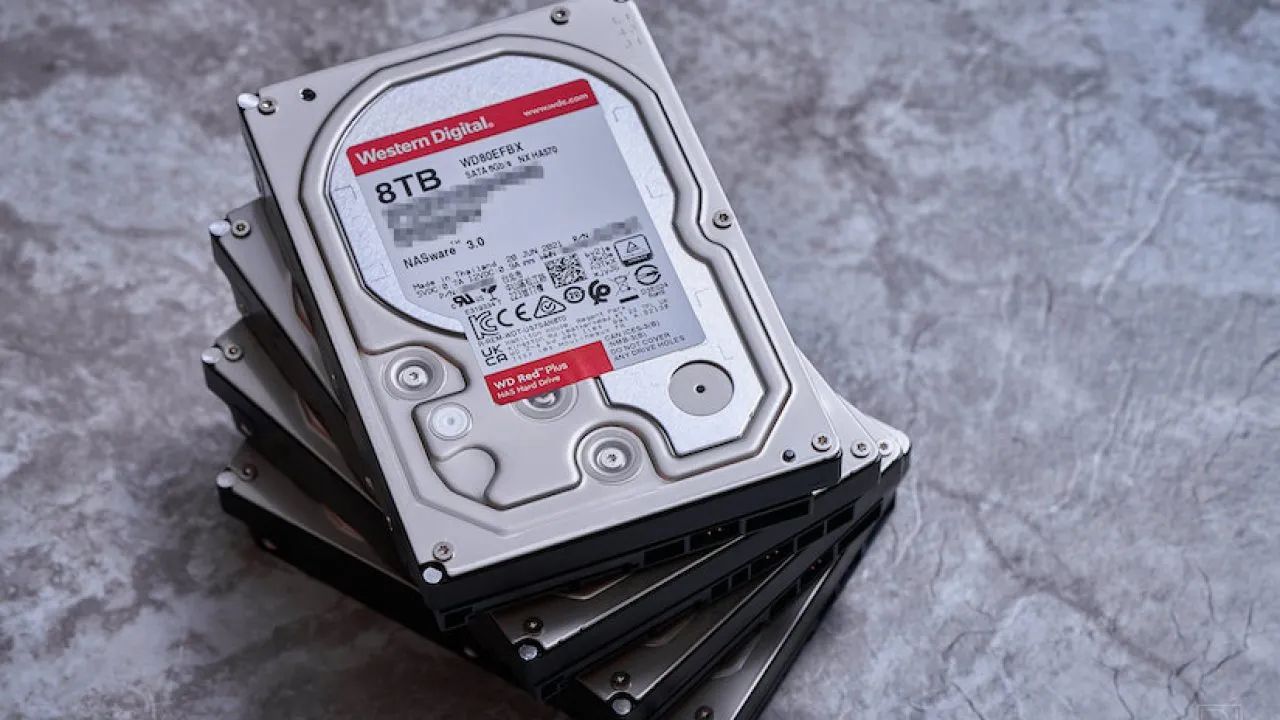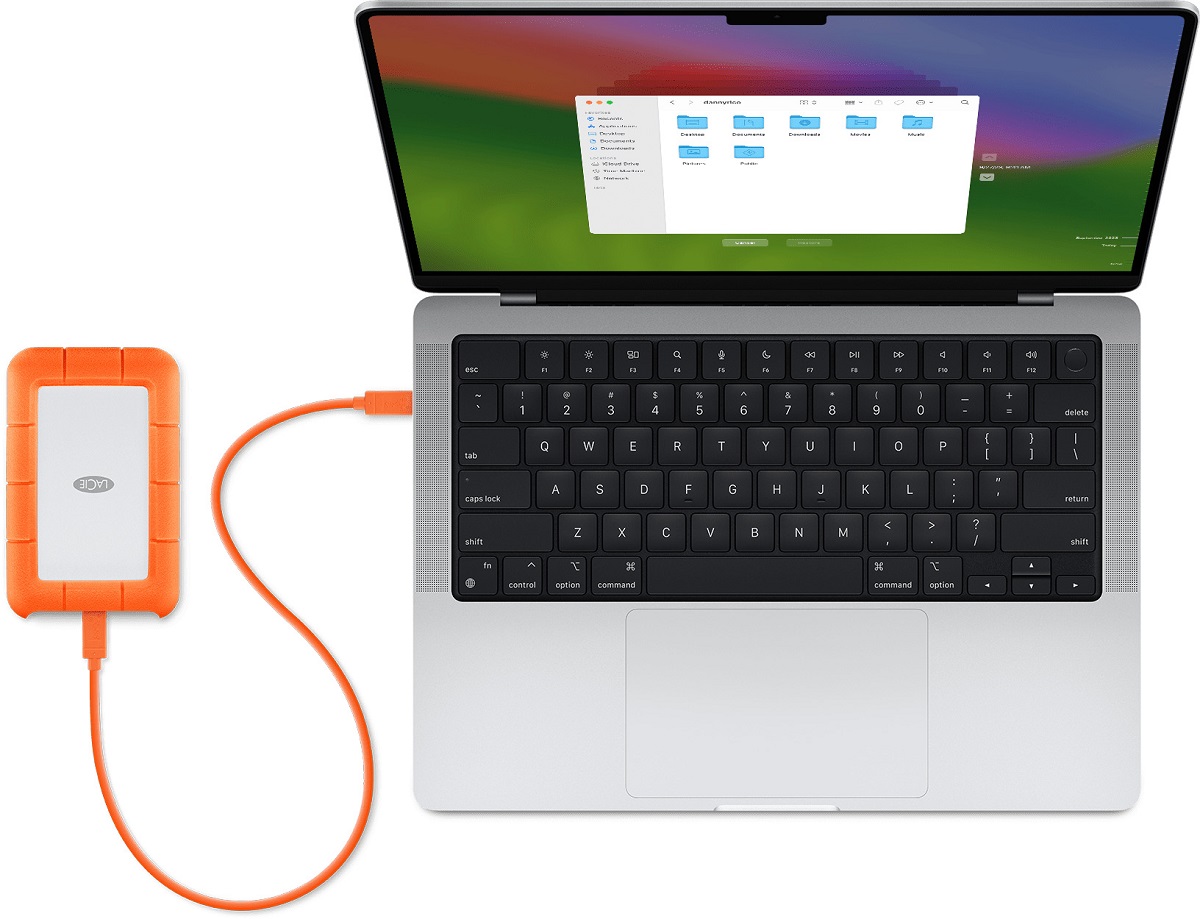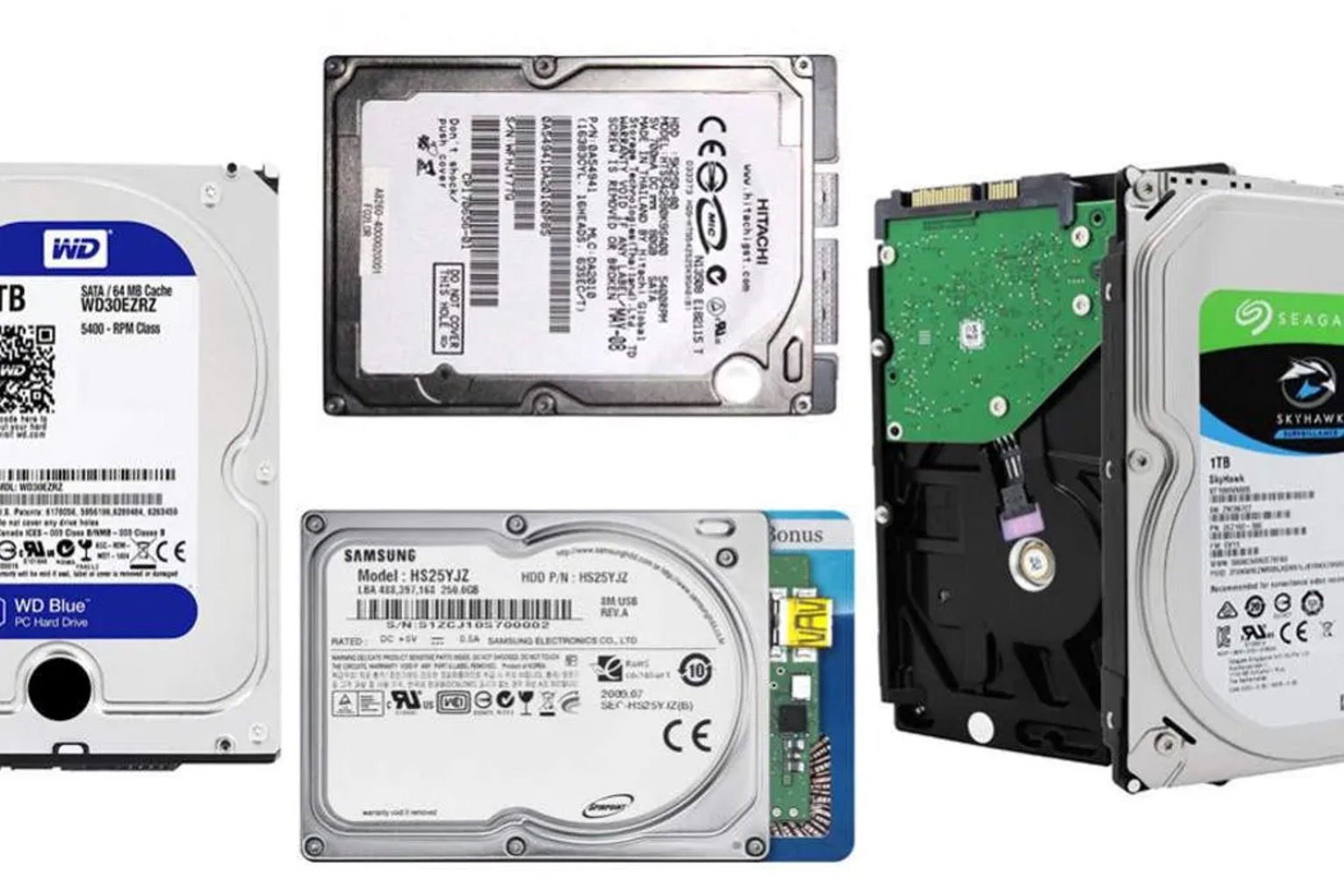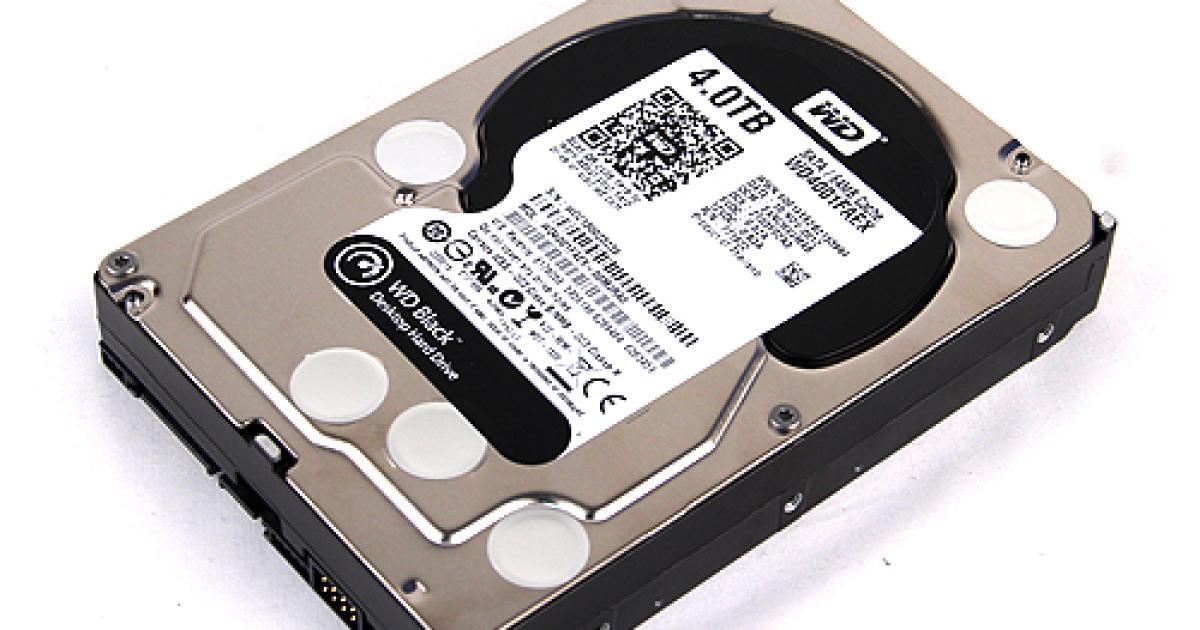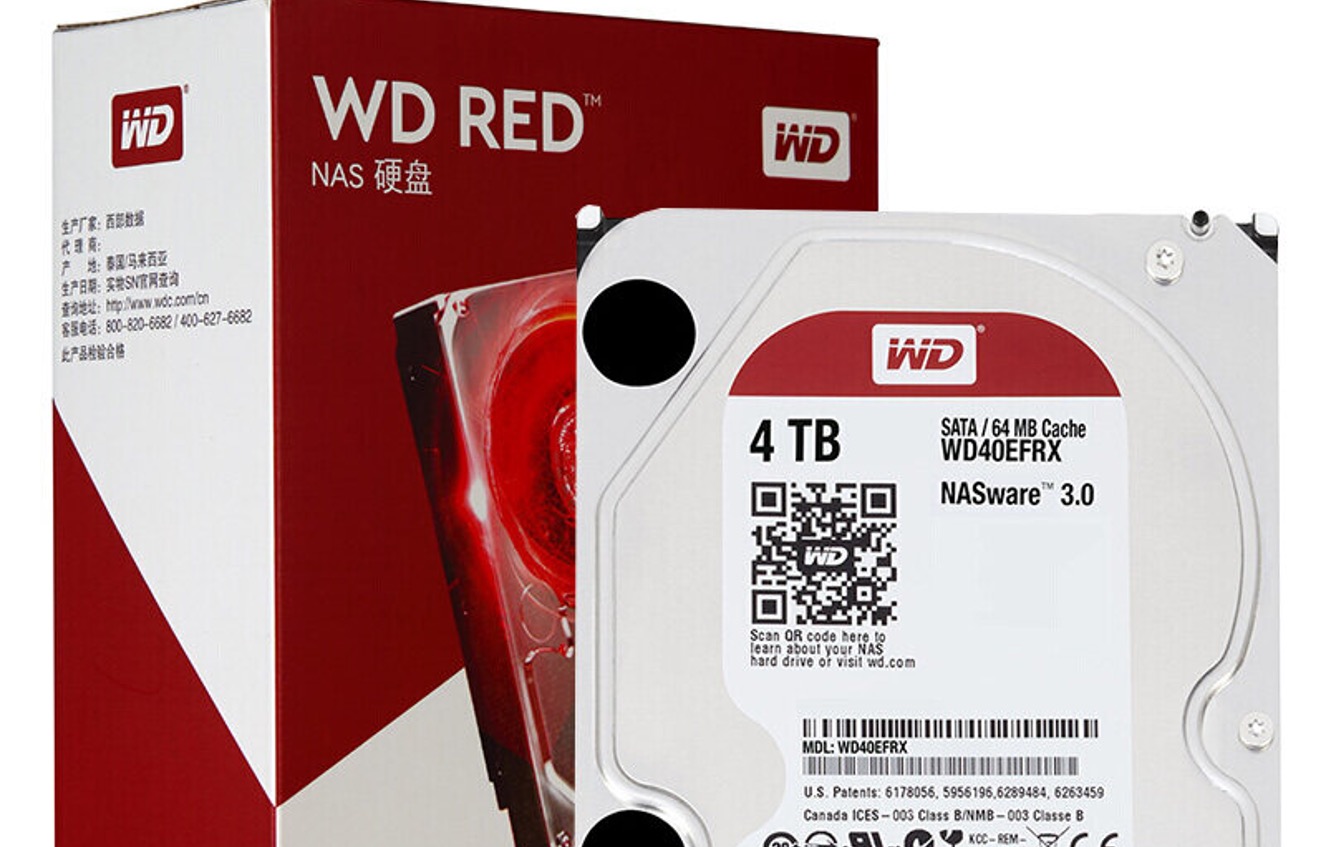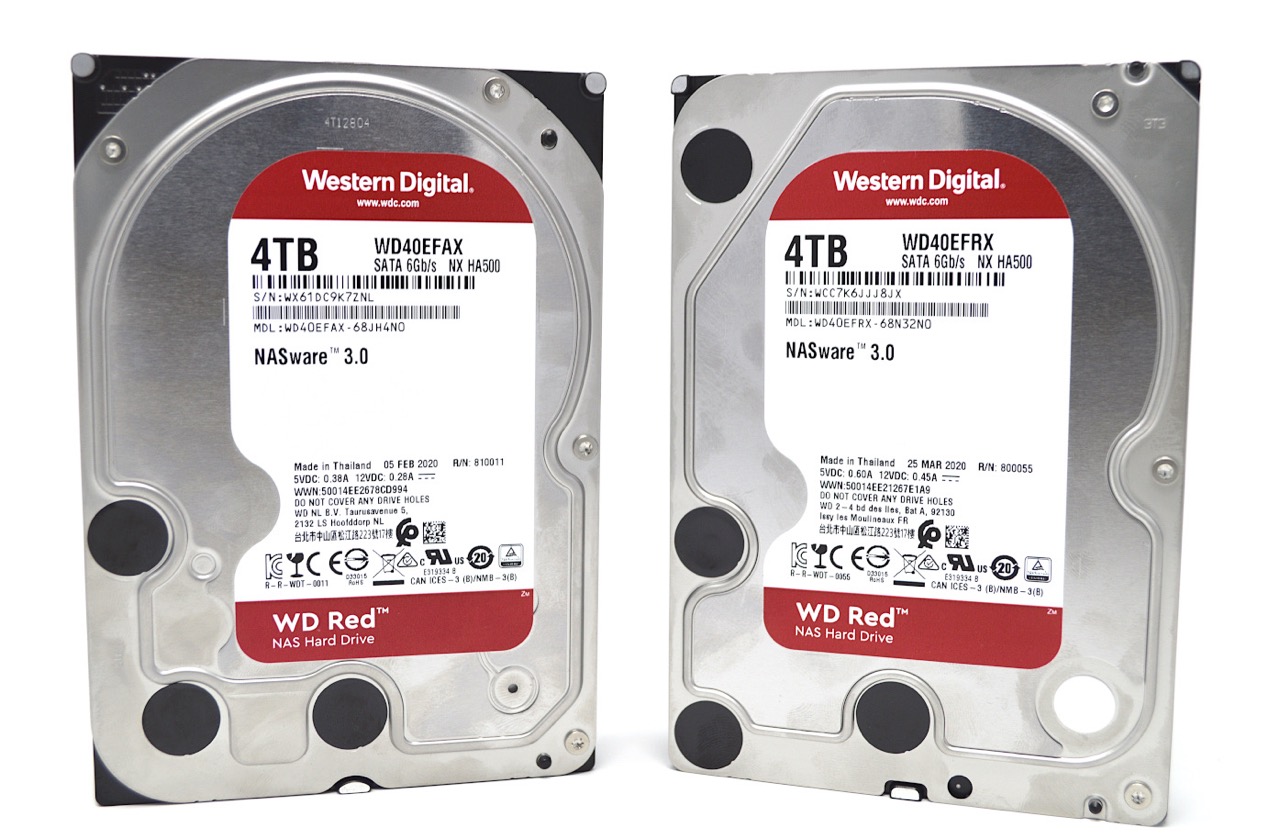Introduction
As technology continues to advance, the way we store and access data has also evolved. One such storage solution that has gained popularity is the NAS hard disk drive (HDD). A NAS HDD offers a reliable and efficient method of storing and retrieving data on a network.
A NAS HDD is designed specifically for use with Network Attached Storage (NAS) devices. These devices allow multiple users to access and share files over a network. Whether it’s for home use or in a small business setting, a NAS HDD provides a convenient way to store and manage data.
But what exactly is a NAS HDD, and how does it differ from a regular HDD? In this article, we will explore the features and benefits of a NAS HDD and provide you with the information you need to make an informed decision when choosing a storage solution for your network.
Throughout the article, we will discuss the advantages of using a NAS HDD, the key features to look for in a NAS HDD, popular brands in the market, buying considerations, how to set up a NAS HDD, and tips for maintaining it. By the end of this article, you will have a comprehensive understanding of NAS HDDs and be well-equipped to make the right choice for your storage needs.
So, let’s dive in and explore the world of NAS HDDs and how they can revolutionize the way you store and access your data.
What is a NAS Hard Disk Drive (HDD)?
A NAS hard disk drive (HDD) is a specialized type of hard drive that is designed for use in Network Attached Storage (NAS) devices. Unlike traditional hard drives that are commonly used in desktop computers or laptops, NAS HDDs are optimized for continuous and reliable operation in a network environment.
At its core, a NAS HDD functions as a storage medium that allows multiple users to access and share files over a network. It acts as a central repository for data, providing a convenient and centralized storage solution for homes, small businesses, and even larger enterprises.
NAS HDDs are built with specific features that make them well-suited for use in NAS systems. These features include:
- Improved Reliability: NAS HDDs are designed to operate continuously, 24/7, without compromising performance. They are built with advanced error recovery controls and improved vibration tolerance to ensure data integrity and prevent data loss.
- Higher Capacity: NAS HDDs offer larger storage capacities compared to regular hard drives. This allows for ample storage space to accommodate the needs of multiple users and the storage demands of modern applications.
- Optimized for RAID: NAS HDDs are optimized for use in RAID (Redundant Array of Independent Disks) configurations. RAID systems improve data reliability and performance by spreading data across multiple drives. NAS HDDs are designed to handle the specific requirements of RAID arrays and ensure optimal performance and data protection.
- Value-added features: Many NAS HDDs come with additional features such as power management, data encryption, and advanced firmware options. These value-added features enhance the functionality and security of the storage system.
Overall, a NAS HDD offers the benefit of reliable and scalable storage that can be accessed by multiple users simultaneously. They provide a cost-effective solution for storing and managing data in a network environment, making them an excellent choice for individuals, small businesses, and organizations with growing storage needs.
Now that we have a basic understanding of what a NAS HDD is, let’s delve deeper into how it differs from a regular HDD in the next section.
How does a NAS HDD differ from a regular HDD?
While both a NAS hard disk drive (HDD) and a regular HDD serve the purpose of storing data, there are significant differences between the two in terms of design, performance, and intended usage.
1. Designed for Different Environments: A regular HDD is primarily designed for individual use in desktop computers or laptops, where it operates in a single-user environment. On the other hand, a NAS HDD is specifically engineered to be used in a network setting, where multiple users can access and share data simultaneously.
2. Optimized for Continuous Operation: NAS HDDs are built to handle continuous and uninterrupted operation, making them ideal for NAS systems that are always powered on. They are designed to withstand the demands of round-the-clock data access and provide improved reliability compared to regular HDDs.
3. Error Recovery Controls: NAS HDDs are equipped with advanced error recovery controls that enable them to handle drive errors and recover data more effectively. This is crucial in a network environment where data integrity is of utmost importance.
4. RAID Optimization: NAS HDDs are optimized for use in RAID configurations, which provide data redundancy and improved performance. Regular HDDs may not have the same level of compatibility with RAID systems and may not perform as well in these setups.
5. Better Vibration Tolerance: NAS HDDs are designed to operate in environments with increased vibration levels, such as inside a NAS device with multiple drives. They are constructed to minimize vibration and noise, ensuring optimal performance and reducing the risk of data loss due to vibrations.
6. Longevity and Warranty: NAS HDDs often come with longer warranties and longer expected lifespans compared to regular HDDs. This is because NAS HDDs are built to be more durable and reliable, given their usage in demanding network environments.
7. Price: NAS HDDs are typically priced slightly higher than regular HDDs due to the additional features and optimizations they offer. However, the increased reliability and performance make them a worthwhile investment for users who require robust and scalable storage solutions.
It’s important to note that while NAS HDDs are specifically designed for NAS systems, they can still be used as regular storage drives. However, using regular HDDs in a NAS system may result in reduced performance, increased risk of data loss, and compatibility issues with RAID configurations.
Understanding the differences between a NAS HDD and a regular HDD will help you make an informed decision when selecting the right storage solution for your specific needs. In the next section, we will explore the advantages of using a NAS HDD over a regular HDD.
Advantages of using a NAS HDD
Utilizing a NAS hard disk drive (HDD) offers several advantages over using a regular HDD in a network storage environment. Whether you’re a small business owner, a home user, or part of a larger organization, here are some key benefits of using a NAS HDD:
- Centralized Storage: A NAS HDD allows you to centralize your data storage, providing a single location where all your files can be accessed and managed. This eliminates the need for multiple external hard drives or scattered file storage, making it convenient to find and share files across your network.
- Easy File Sharing: With a NAS HDD, you can easily share files with other users on the network. It simplifies collaboration and allows for seamless sharing of documents, media files, and other resources, whether it’s within your home network or a business setting.
- Accessibility: NAS HDDs provide remote access capabilities, allowing you to access your files from anywhere with an internet connection. This means you can retrieve important documents, photos, or videos even when you’re away from your home or office, enhancing flexibility and productivity.
- Data Redundancy: By integrating a NAS HDD into a RAID configuration, you can create data redundancy and improve the overall reliability of your storage system. NAS HDDs are designed to work seamlessly with RAID setups, providing fault tolerance and protection against data loss.
- Scalability: NAS HDDs offer flexibility and scalability when it comes to storage capacity. The ability to easily add additional drives or upgrade to larger capacities allows you to adapt to changing storage needs without having to invest in entirely new storage solutions.
- Improved Data Management: NAS HDDs often come with built-in software and features designed to simplify data management. These include automated backups, data synchronization, and remote management tools, making it easier to organize, secure, and maintain your data.
- Enhanced Data Security: Many NAS HDDs offer features like data encryption, password protection, and advanced user management. These security measures help safeguard your sensitive and confidential data from unauthorized access, ensuring peace of mind.
- Cost-Effective Solution: While NAS HDDs may have a slightly higher upfront cost compared to regular HDDs, they offer long-term cost savings. The durability, reliability, and scalability of NAS HDDs make them a cost-effective solution that can grow with your storage needs over time.
By leveraging the advantages of using a NAS HDD, you can improve productivity, streamline data management, and enhance data security within your network. The next section will highlight key features to consider when choosing a NAS HDD.
Key Features to Look for in a NAS HDD
When selecting a NAS hard disk drive (HDD) for your network storage needs, it’s important to consider certain key features that will ensure optimal performance, reliability, and compatibility. Here are some important features to look for:
- Capacity: Determine the storage capacity that suits your needs. NAS HDDs are available in a wide range of capacities, from a few terabytes (TB) to multiple petabytes (PB), allowing you to choose a storage size that accommodates your data requirements.
- Speed: Look for NAS HDDs with high rotational speeds, measured in revolutions per minute (RPM). Higher RPM usually translates to faster data transfer and quicker access times, resulting in improved performance for your NAS system.
- Compatibility: Ensure that the NAS HDD you choose is compatible with your NAS device. Check the manufacturer’s specifications and compatibility list to ensure seamless integration and optimal performance.
- RAID Support: Verify that the NAS HDD is specifically designed to support RAID configurations. Look for features such as RAID optimization, error recovery controls, and compatibility with different RAID levels, depending on your data protection and performance needs.
- Reliability: Select a NAS HDD with a proven track record for reliability and durability. Look for features like advanced error recovery controls, vibration resistance, and a high Mean Time Between Failures (MTBF) rating to ensure uninterrupted operation.
- Power Efficiency: Consider the power consumption of the NAS HDD. Opt for drives that feature power-saving technologies, such as low-power idle modes or automatic power management, to reduce energy consumption and operating costs.
- Noise and Vibration: Look for NAS HDDs that are designed to operate quietly and minimize vibrations. This is especially important when multiple drives are installed in a NAS system, as excessive noise and vibration can impact performance and reliability.
- Manufacturer Support: Research the reputation and customer support of the NAS HDD manufacturer. Choosing reputable brands with strong customer service can provide peace of mind in case you encounter any issues or require assistance with your NAS HDD.
- Warranty: Check the warranty period offered by the manufacturer. A longer warranty period indicates the manufacturer’s confidence in the reliability and durability of the NAS HDD, providing you with added assurance for your investment.
By considering these key features, you can ensure that the NAS HDD you choose meets your specific requirements in terms of capacity, performance, reliability, and compatibility. In the following section, we will highlight some popular brands in the NAS HDD market to help you make an informed decision.
Popular NAS HDD Brands
When it comes to choosing a NAS hard disk drive (HDD) for your network storage needs, there are several popular brands known for their high-quality products and reliable performance. Here are some well-regarded NAS HDD brands worth considering:
- Seagate: Seagate is one of the leading manufacturers of storage solutions, including NAS HDDs. They offer a wide range of reliable drives with varying capacities and performance levels. Seagate NAS HDDs are known for their durability, compatibility with RAID arrays, and power efficiency.
- Western Digital (WD): WD is another trusted brand in the storage industry. Their Red series of NAS HDDs are specifically designed for use in NAS systems, providing reliable performance, compatibility with RAID configurations, and advanced features like NASware technology for enhanced compatibility and reliability.
- Toshiba: Toshiba offers a range of NAS HDDs that are known for their performance, reliability, and compatibility. Their NAS series drives are designed to handle the demands of continuous operation in a network environment, providing optimal performance and data protection for NAS systems.
- HGST: HGST, a subsidiary of Western Digital, is renowned for its high-quality drives. Their Deskstar NAS HDDs are popular among users looking for reliable storage solutions for their NAS systems. HGST drives are known for their performance, durability, and compatibility with RAID configurations.
- QNAP: QNAP is a brand that not only offers NAS devices but also produces their own line of NAS HDDs. Their drives are designed to work seamlessly with QNAP NAS systems, providing optimized performance, compatibility, and reliability.
- Synology: Synology is well-known for its NAS devices, and they also offer their own line of NAS HDDs. These drives are specifically designed to work in tandem with Synology NAS systems, ensuring compatibility, reliability, and optimal performance.
It’s important to note that the popularity and reputation of NAS HDD brands may vary based on geographic location and user preferences. It’s always a good idea to research user reviews, seek recommendations, and consider your specific requirements when choosing a brand for your NAS HDD.
Now that we have explored popular NAS HDD brands, let’s move on to the next section, where we will discuss important considerations when purchasing a NAS HDD.
Buying Considerations for a NAS HDD
When purchasing a NAS hard disk drive (HDD), there are several important factors to consider to ensure you choose the right drive that meets your specific storage requirements. Here are some key considerations to keep in mind:
- Capacity: Determine the amount of storage capacity you need for your NAS HDD based on your data storage requirements. Consider factors such as the number of users, types of files you need to store, and anticipated future storage needs.
- Performance: Look for a NAS HDD with higher rotational speeds (RPM) for faster data transfer rates and shorter access times. This is particularly important if you will be accessing and transferring large files frequently or running intensive applications on your NAS system.
- Compatibility: Ensure that the NAS HDD you choose is compatible with your NAS device. Check the manufacturer’s specifications and compatibility list to avoid any compatibility issues and ensure seamless integration.
- RAID Configuration: If you plan to use RAID for data redundancy and improved performance, consider a NAS HDD that is specifically optimized for RAID. Look for features such as RAID support, compatibility with different RAID levels, and error recovery controls to ensure optimal performance in a RAID setup.
- Reliability: Choose a reliable and durable NAS HDD from reputable brands known for their quality drives. Look for drives with advanced error recovery controls, high Mean Time Between Failures (MTBF) ratings, and vibration resistance for improved reliability and data protection.
- Power Efficiency: Consider the power consumption of the NAS HDD, especially if you plan to keep your NAS system running 24/7. Look for drives that feature power-saving technologies, such as low-power idle modes or automatic power management, to reduce energy consumption and operating costs.
- Warranty: Check the warranty period offered by the manufacturer. A longer warranty period indicates the manufacturer’s confidence in the quality and reliability of their NAS HDD. It provides you with added assurance and support in case of any issues with the drive.
- Price: Consider your budget and compare prices across different brands and models to find a NAS HDD that offers the best value for your money. Remember to balance price with the features, performance, and reliability required for your specific storage needs.
By carefully considering these buying considerations, you can make an informed decision and choose a NAS HDD that aligns with your storage requirements, performance expectations, and budget. In the next section, we will guide you through the process of setting up a NAS HDD.
How to Set Up a NAS HDD
Setting up a NAS hard disk drive (HDD) involves a few key steps to ensure proper installation and configuration. Here’s a guide to help you set up your NAS HDD:
- Select a NAS Device: First, choose a NAS device that suits your needs and budget. Consider factors such as the number of drive bays, supported RAID configurations, and available features. Follow the manufacturer’s instructions to properly assemble and connect the NAS device.
- Install the NAS HDD: Insert the NAS HDD into an available drive bay, following the manufacturer’s instructions. Ensure that the HDD is securely connected to the NAS device using the provided screws or trays.
- Access the NAS Interface: Connect your NAS device to your local network using an Ethernet cable. Power on the NAS device and use the manufacturer’s instructions to access the NAS interface. This can typically be done by entering the device’s IP address in a web browser.
- Follow the Setup Wizard: Most NAS devices have a setup wizard that walks you through the initial configuration. The wizard will help you create a shared folder, set up user accounts, and configure network settings. Follow the on-screen instructions to complete the setup process.
- Configure RAID: If you plan to use RAID for data redundancy or improved performance, access the NAS interface and navigate to the RAID settings. Follow the instructions to create a RAID array and select the desired RAID level that suits your needs.
- Create User Accounts and Permissions: Set up user accounts and assign permissions to control access to the shared folders. This allows you to manage who can access and modify the files stored on the NAS HDD.
- Backup and Synchronization: Configure backup and synchronization settings to ensure that your data is protected. Most NAS devices offer built-in backup features and support for synchronization with cloud storage services or other NAS devices.
- Test and Verify: Before starting to store your valuable data on the NAS HDD, perform a test by transferring a few files and accessing them from different devices within your network. This helps ensure that the NAS HDD is functioning properly and provides peace of mind.
- Access and Manage Your Data: Once the setup is complete, you can start accessing and managing your data on the NAS HDD. Use the NAS device’s interface or dedicated software provided by the manufacturer to access your shared folders and files from any device connected to your network.
It’s important to refer to the specific instructions and documentation provided by the manufacturer of your NAS device to ensure a smooth and successful setup process. By following these steps, you can enjoy the benefits of a centralized and accessible storage solution with your NAS HDD.
In the next section, we will cover some tips for maintaining your NAS HDD to ensure its longevity and optimal performance.
Tips for Maintaining a NAS HDD
Maintaining your NAS hard disk drive (HDD) is crucial to ensure its longevity, reliability, and optimal performance. By following these tips, you can keep your NAS HDD running smoothly and protect your valuable data:
- Regularly Backup Your Data: Set up automated backups to an external storage device or a cloud storage service. Regularly backing up your data helps safeguard against data loss in case of drive failure or other unforeseen events.
- Monitor Drive Health: Utilize the monitoring tools provided by your NAS device or third-party software to monitor the health of your NAS HDD. Keep an eye on indicators such as drive temperature, SMART (Self-Monitoring, Analysis and Reporting Technology) status, and any reported errors or warnings.
- Update Firmware: Check for firmware updates for your NAS HDD regularly. Manufacturers release firmware updates to address bugs, improve stability, and enhance performance. Follow the manufacturer’s instructions to safely update the firmware.
- Manage Drive Usage: Keep track of the amount of storage space being utilized on your NAS HDD. Regularly remove unnecessary files or transfer them to long-term storage to free up space and ensure efficient drive performance.
- Protect Against Power Surges: Use a surge protector or an uninterruptible power supply (UPS) to protect your NAS HDD from power surges, fluctuations, and outages. Sudden power loss can lead to data corruption or damage to the drive.
- Keep the Drive Cool: Ensure proper airflow and ventilation around the NAS device to prevent overheating. Excessive heat can impact the performance and lifespan of the NAS HDD. Consider using cooling fans or positioning the device in a well-ventilated area.
- Perform Regular Disk Checks: Schedule regular disk checks and repairs using the built-in disk checking tools provided by your NAS device. This can help identify and resolve any potential drive errors or bad sectors before they escalate into more significant issues.
- Protect Against Malware: Install and regularly update antivirus and anti-malware software on your NAS device to protect against potential threats. Malware can compromise the security and integrity of your data on the NAS HDD.
- Secure Remote Access: If you enable remote access to your NAS HDD, ensure that you set up secure remote access protocols, such as secure file transfer protocols (SFTP) or virtual private networks (VPNs), to protect your data during remote connections.
- Follow Best Practices: Adhere to best practices for handling, operating, and maintaining your NAS HDD. This includes avoiding physical shocks or impacts, safely ejecting or powering off the drives, and regularly cleaning the NAS device to prevent dust buildup.
By implementing these maintenance tips, you can extend the lifespan of your NAS HDD, reduce the risk of data loss, and ensure the optimal performance and reliability of your storage system.
Now that we have covered tips for maintaining your NAS HDD, let’s conclude by summarizing the key points discussed throughout the article.
Conclusion
In conclusion, a NAS hard disk drive (HDD) provides a reliable and efficient storage solution for network-attached storage systems. With its optimized design for continuous operation, improved reliability, and compatibility with RAID configurations, a NAS HDD offers several advantages over a regular HDD.
Choosing the right NAS HDD involves considering factors such as capacity, performance, compatibility, reliability, and price. Popular brands like Seagate, WD, Toshiba, HGST, QNAP, and Synology offer a range of NAS HDDs that cater to various storage requirements and budgets.
Setting up a NAS HDD involves installing the drive into a NAS device, accessing the NAS interface, following the setup wizard, configuring RAID, and managing user accounts and permissions. Regular maintenance is crucial to ensure the longevity and optimal performance of the NAS HDD, including regular backups, monitoring drive health, updating firmware, managing drive usage, and protecting against power surges.
By following these tips and best practices, you can maintain your NAS HDD effectively and protect your valuable data. The convenience of centralized storage, file sharing capabilities, scalability, and enhanced data management offered by a NAS HDD make it a valuable solution for homes, small businesses, and larger organizations.
Whether you’re looking to streamline data storage, improve collaboration, or enhance data protection, a NAS HDD is a reliable and versatile tool that can meet your network storage needs. Consider the features, choose a reputable brand, and invest in a NAS HDD that aligns with your storage requirements and budget.
With proper setup, maintenance, and utilization, a NAS HDD can revolutionize the way you store, access, and share your data, providing convenience, reliability, and peace of mind.







